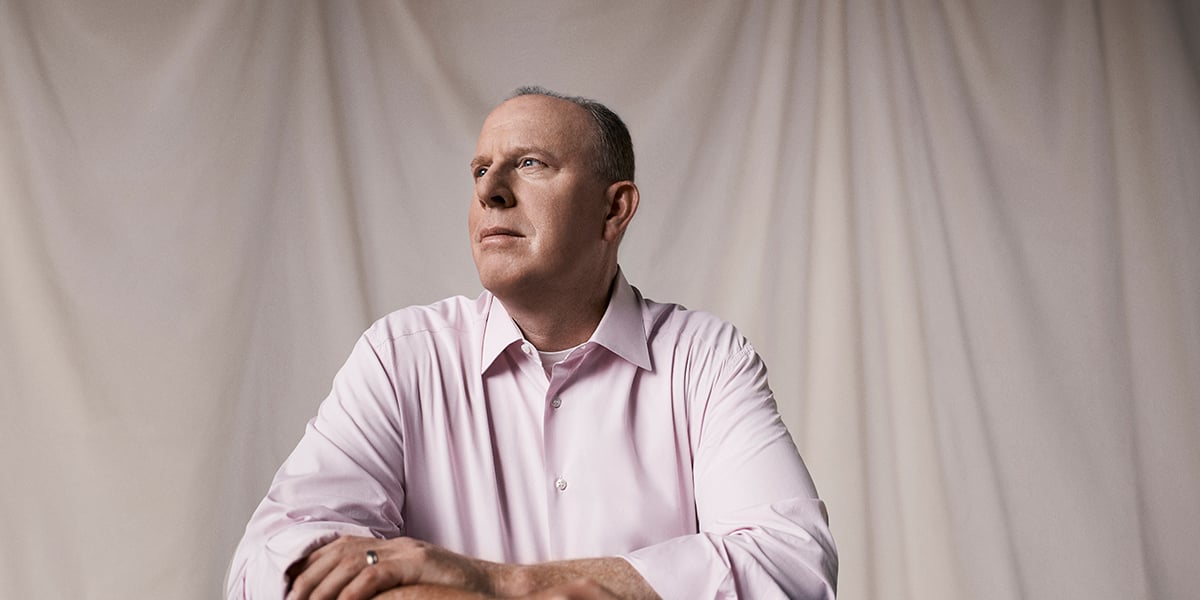
The Business of Caring: How Compassion Fuels a Biotech Heavyweight
–Tim Walbert, Chairman, President and CEO, Horizon Therapeutics
For the millions of people in the world who suffer from a rare disease, the illness itself is the most obvious challenge. Yet isolation, loneliness and difficulty receiving a definitive diagnosis are also debilitating—and almost universal experiences among these patients. The very nature of a rare disease means that most primary care physicians have never seen a patient with a particular one. They have no experience with how these diseases present or affect patients.
In fact, an affected person can go five to 10 years before receiving an accurate diagnosis. Finding others who are experiencing the same symptoms and impacts on their life can be extremely difficult. This can make people feel alone and sometimes even mentally unstable because no one understands what they are going through. Additionally, treatments exist for only around 5% of the 7,000 known rare diseases, meaning that far too many people suffer without hope.
Horizon was founded on the premise that patients with rare, autoimmune and severe inflammatory diseases deserve better. That’s why we’re working to shorten the time to diagnose these conditions and develop new medicines and treatments.
We keep patients at the center of our business, so we’re always focused on what we can do to improve lives. That philosophy informs everything from our research to our employee retention. I like to think the commitment to our patients and their needs plays a part in why our 2020 employee turnover rate was about half the industry average. It’s no coincidence that many of our approximately 2,000 employees are patients or caregivers themselves—starting with me. As a junior in college, I was diagnosed with an autoimmune condition and, 10 years later, I was diagnosed with a rare disease. More recently, I became a parent and caregiver to a patient when my son also developed that rare disease.
Horizon’s understanding of what patients and their families go through makes us not only more compassionate, but also more determined to serve them. We are intimately aware of how these illnesses can affect the patient, as well as their entire family and community. And we know the struggles that all too often happen between onset and diagnosis. It’s why we listen closely to our patients and won’t be satisfied until every patient has an option for effective treatment—a conviction that underpins our entire company.
For example, we heard from a patient community that some patients were unable or found it difficult to take one of our medicines because it was administered as a pill and their illness made swallowing difficult; this limited the number of people able to benefit from the treatment. Our solution was to create a granule form that can be sprinkled onto food, stirred into a liquid or administered through a gastrostomy tube (g-tube). It made the medicine easier to take, which also expanded the number of people who can use the medicine—increasing our potential to improve more lives.
Combining savvy business strategy with personalized care has been a winner for Horizon, as evidenced by the almost meteoric growth of the company. Since our IPO in 2011, our stock price has jumped more than 1,000% as of the start of December 2021, and net sales increased from $7 million in 2011 to $2.2 billion in 2020.
In the face of the pandemic shutdown, we debuted the first FDA-approved medicine for thyroid eye disease—one of the most successful rare disease medicines ever. In the third quarter of 2021—with net annual sales for the year expected to be greater than $1.625 billion—it also became our first billion-dollar medicine.
It won’t be our last. Our current growth drivers and pipeline are composed of assets that may eventually have a peak annual net sales potential of around $10 billion. We now have more than 20 clinical trials either underway or set to begin throughout 2022.
We’ve strategically acquired novel molecules, including the thyroid eye disease medicine, which we purchased for $145 million in 2017. As the world shut down in March 2020, we pushed ahead with a $3.05 billion acquisition that significantly increased our R&D pipeline and capabilities—one of the final steps in our transformation into a full-fledged, innovation-driven biotechnology company.
In the decade after college, when I was searching for answers to my continuing problems, I saw more than 100 physicians and lost count of the times I was called “an interesting case.” That’s why caring for patients with rare, autoimmune and severe inflammatory diseases is and always will be more than just business. To me, it’s personal.
